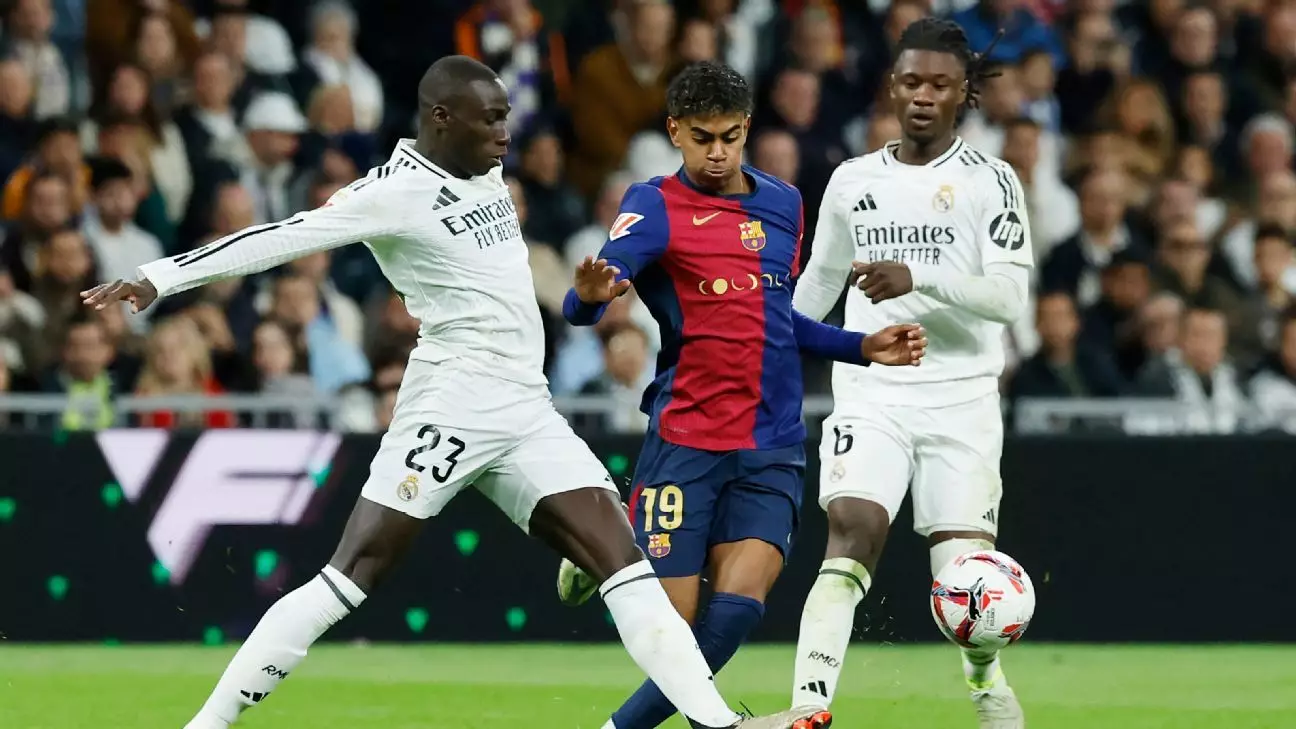In a troubling manifestation of bigotry within sports, recent events during a Clásico match at the Santiago Bernabéu Stadium have drawn significant attention to the persistent issue of racism in football. Spanish police announced the arrest of three individuals allegedly involved in making racist remarks towards Barcelona players Lamine Yamal and Raphinha during the October encounter. The game concluded with a resounding 4-0 win for Barcelona, yet celebrations were overshadowed by the intolerable behavior exhibited by a section of fans. The swift response by the authorities reveals a commitment to addressing such dark facets of the sport, but raises questions about the culture within football stadiums.
Legal Actions and LaLiga’s Stance
The arrests were prompted by a formal complaint from LaLiga, which sought police intervention after uncovering evidence of the derogatory remarks. LaLiga’s proactive approach included compiling recordings of the incidents and securing insights from a lip-reading expert to substantiate the claims. Such measures underscore the league’s determination to combat racism, emphasizing that incidents of this nature cannot be brushed aside. LaLiga’s leadership has publicly reaffirmed its dedication to rooting out discrimination, vowing to remain vigilant both on and off the pitch.
This incident is not isolated; it fits into a worrying trend of racial abuse plaguing leagues around Spain, prominently exemplified by the treatment of Real Madrid’s Vinícius Júnior. Since moving to Spain in 2018, the Brazilian international has faced incessant racist abuse, leading him to candidly express his ongoing struggles with the emotional fallout of this hatred. His experiences beckon a larger discussion about racism in football—a topic that demands consistent scrutiny and dedicated responses from clubs, leagues, and regulatory authorities.
The legal measures taken against offenders, such as the recent jail sentences handed down to fans of Valencia and Mallorca for similar offenses, highlight a shift toward accountability. These actions, previously rare, are now beginning to set precedents within Spanish law, suggesting a societal recognition that racism has no place in sports. LaLiga President Javier Tebas has called for more stringent penalties, including prison sentences for offenders—an urgent plea that reflects the league’s commitment to eradicating this toxic element from the sport.
The Role of Players and Advocates
In the wake of these events, solidarity among players against racism has also been amplified. Notably, Vinícius Júnior was quick to voice his outrage, condemning the actions of fans during the Clásico and asserting that such behavior is intolerable in society. His advocacy shines a light on the broader implications of racism, urging not only for accountability but also for a cultural shift among fans and the footballing community. As role models, players possess significant influence, and their stands against racism can inspire change and awareness beyond the pitch.
Lamine Yamal, who has quickly become a vital player for Barcelona since his debut at the tender age of 15, finds himself at the center of this conversation. His experiences, both on and off the field, emphasize the need for greater support from clubs, fans, and leagues to protect young talents who may face discrimination due to their race or ethnicity. Yamal’s resilience and skill should not be overshadowed by the ignorance of a few.
The fight against racism in football necessitates a collective effort from all stakeholders—clubs, players, fans, and governing bodies alike. The recent arrests in connection with the Clásico incident represent a step towards accountability, yet much work remains to be done. The focus must shift from merely punishing offenders to fostering an inclusive environment where diversity is celebrated and xenophobia is eradicated. By uniting against hatred and reflecting on our responsibilities as a society, the hope is that future generations of footballers can enjoy the sport free from the shadow of racism.
The path to overcoming racism in football is fraught with challenges, yet the momentum for change appears to be growing. The engagement of players as advocates for justice, the proactive stance of leagues, and the increasing legal repercussions for offenders form a robust foundation upon which a more inclusive football culture can be built. The fight against racism must continue unabated, with vigilance and accountability at its core, ensuring that the beautiful game remains a space of respect and dignity for all.

